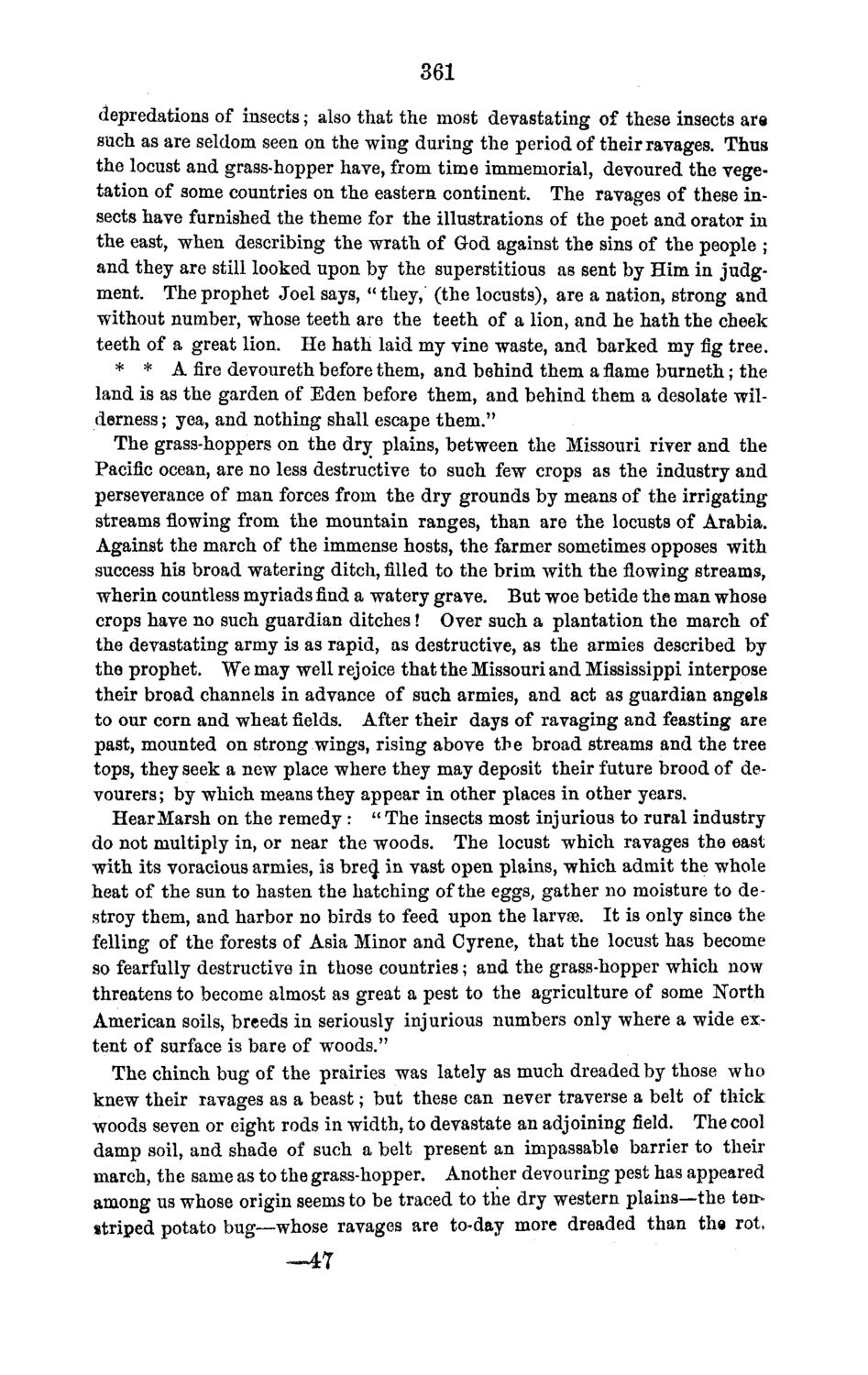| |
| |
Caption: Board of Trustees Minutes - 1870
This is a reduced-resolution page image for fast online browsing.

EXTRACTED TEXT FROM PAGE:
361 depredations of insects; also that the most devastating of these insects are such as are seldom seen on the wing during the period of their ravages. Thus the locust and grass-hopper have, from time immemorial, devoured the vegetation of some countries on the eastern continent. The ravages of these insects have furnished the theme for the illustrations of the poet and orator in the east, when describing the wrath of God against the sins of the people ; and they are still looked upon by the superstitious as sent by Him in judgment. The prophet Joel says, "they, (the locusts), are a nation, strong and without number, whose teeth are the teeth of a lion, and he hath the cheek teeth of a great lion. He hath laid my vine waste, and barked my fig tree. * * A fire devoureth before them, and behind them a flame burneth; the land is as the garden of Eden before them, and behind them a desolate wilderness ; yea, and nothing shall escape them." The grass-hoppers on the dry plains, between the Missouri river and the Pacific ocean, are no less destructive to such few crops as the industry and perseverance of man forces from the dry grounds by means of the irrigating streams flowing from the mountain ranges, than are the locusts of Arabia. Against the march of the immense hosts, the farmer sometimes opposes with success his broad watering ditch, filled to the brim with the flowing streams, wherin countless myriads find a watery grave. But woe betide the man whose crops have no such guardian ditches I Over such a plantation the march of the devastating army is as rapid, as destructive, as the armies described by the prophet. We may well rejoice that the Missouri and Mississippi interpose their broad channels in advance of such armies, and act as guardian angels to our corn and wheat fields. After their days of ravaging and feasting are past, mounted on strong wings, rising above the broad streams and the tree tops, they seek a new place where they may deposit their future brood of devourers; by which means they appear in other places in other years. Hear Marsh on the remedy : " The insects most injurious to rural industry do not multiply in, or near the woods. The locust which ravages the east with its voracious armies, is bre<J in vast open plains, which admit the whole heat of the sun to hasten the hatching of the eggs, gather no moisture to destroy them, and harbor no birds to feed upon the larvae. It is only since the felling of the forests of Asia Minor and Cyrene, that the locust has become so fearfully destructive in those countries; and the grass-hopper which now threatens to become almost as great a pest to the agriculture of some North American soils, breeds in seriously injurious numbers only where a wide extent of surface is bare of woods." The chinch bug of the prairies was lately as much dreaded by those who knew their ravages as a beast; but these can never traverse a belt of thick woods seven or eight rods in width, to devastate an adjoining field. The cool damp soil, and shade of such a belt present an impassable barrier to their march, the same as to the grass-hopper. Another devouring pest has appeared among us whose origin seems to be traced to the dry western plains—the tenstriped potato bug—whose ravages are to-day more dreaded than the rot —47
| |